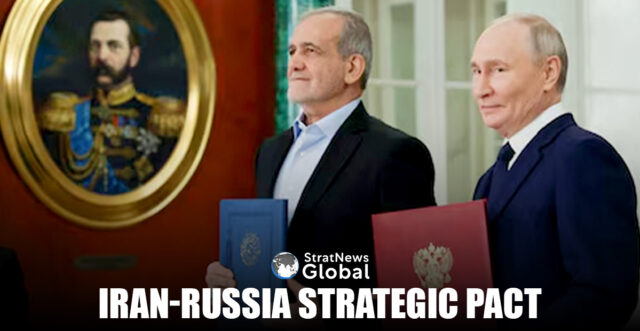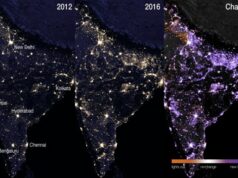Iran parliament on Wednesday approved a 20-year strategic partnership with Russia, state media reported, marking a significant deepening of bilateral relations, including enhanced defence cooperation.
Russian President Vladimir Putin and his Iranian counterpart Masoud Pezeshkian signed the strategic partnership document on January 17.
The Russian legislative branch approved the pact in April. While the agreement does not include a mutual defence clause, it says both countries will work together against common military threats, develop their military-technical cooperation, and take part in joint exercises.
Since the start of the war in Ukraine in 2022, Iran and Russia have deepened military ties, with Western countries accusing Iran of providing missiles and drones for Russian attacks on Ukraine.
Tehran denies providing weapons for Russian use in Ukraine.
The strategic pact also includes several clauses aimed at boosting economic partnership, notably by strengthening direct interbank cooperation and promoting their national financial products.
A free trade deal between Iran and the Russian-led Eurasian Economic Union went into effect last week, cutting down tariffs to boost trade between the two economies, which are both under heavy Western sanctions.
Tensions Over Nuclear Deal
The development comes at a time when tensions between Iran and the United States over the nuclear deal, formally known as the Joint Comprehensive Plan of Action (JCPOA), are high.
Originally signed in 2015 between Iran and world powers, including the U.S., the agreement aimed to limit Iran’s nuclear activities in exchange for sanctions relief.
However, President Donald Trump, during his first term in 2018, unilaterally withdrew the U.S. from the deal, reimposing severe economic sanctions on Tehran.
The move escalated tensions and led Iran to progressively reduce its compliance with the agreement, enriching uranium beyond permitted levels and limiting international inspections.
Efforts to revive the deal under President Joe Biden’s administration faced numerous obstacles, including disagreements over the sequencing of sanctions relief and nuclear rollback measures.
Iran insists the U.S. must lift all sanctions first, while Washington demands that Tehran return to full compliance with the JCPOA. Further complicating talks are regional tensions, Iran’s support for proxy groups, and its expanding missile programme, which the U.S. and its allies view as a security threat.
(With inputs from Reuters)





